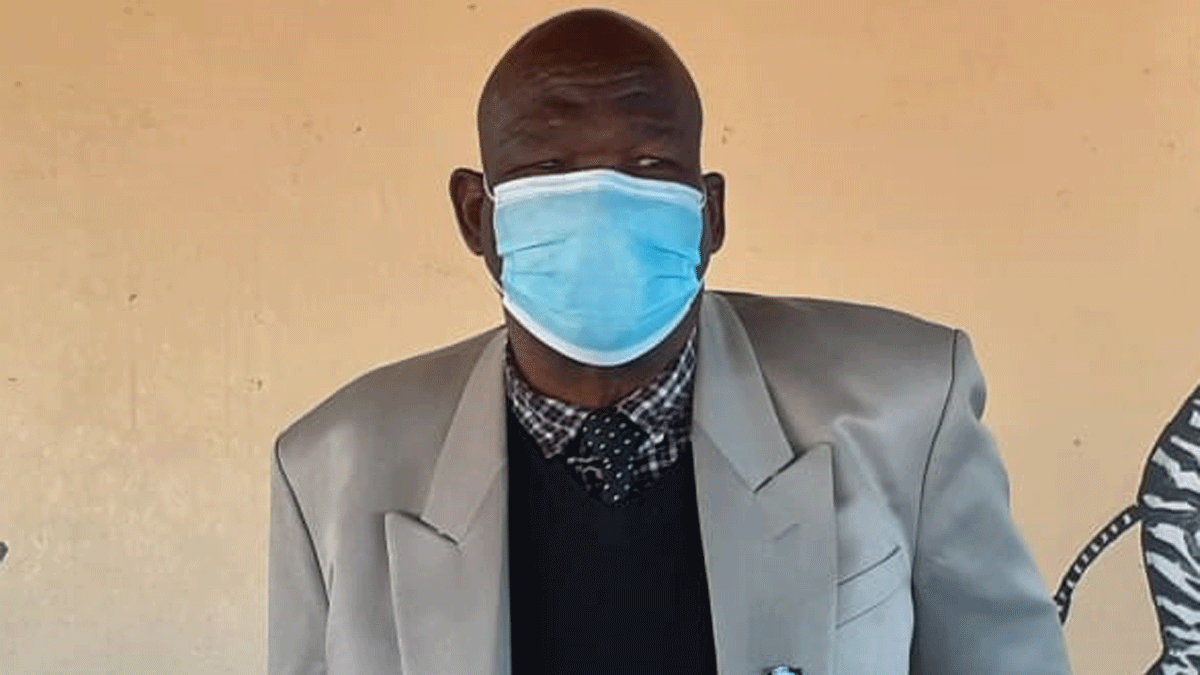QUICK THINKING MAN SAVES HIS BOSS FROM LION ATTACK
Growing up in an island of Xhoroha, deep in the Okavango Delta, Tomeletso Water Setabosha knows how to share the jungle with wild animals.
Although he is always aware of the lurking danger posed by the different species, the ‘bush boy’ who grew up to become a tour guide has learnt to co-exist with them in peace.
“We only kill when necessary, and that is when we have to save a person’s life,” he said in an interview about how he recently saved a Namibian researcher from being mauled to death by a marauding lion.
Speaking at his home in Moeti ward in Maun, Setabosha said he used his indigenous Knowledge and quick thinking skills to save his boss; Gotz Neef, the research manager of Botswana Wild Bird Trust, that fateful Monday morning of 07 December, 2020.
It started off as a regular day, which later turned into a frightful event for the research team that had set up camp somewhere near Mombo Safari Camp when a lion entered their camp and attacked the manager.
“It was between 6 and 7 pm. The lion started making sounds as though it was calling others. Shortly after, a whole pride arrived, around 13 or so lions. They were definitely more than 10,” explained Setabosha.
The team watched the lions at a safe distance, but then without causing any problem, the pride walked away.
“We sat around the fire and supper was served. We sat outside until around 9pm. I was the last to retire to my tent,” explained Setabosha before adding that, “in the middle of the night we heard Neef calling out his neighbours name.
Dr Rainer von Brandis, who was being called was sleeping in the next tent as the lion pushed against Neef’s tent. Brandis is the director of the same Trust.
“Suddenly he (Neef) started shouting and mentioning that it was a lion and I knew, and I think my colleagues knew too that the pride of lions that had eyed us earlier had returned to the camp and if we left our tents they were going to eat us all,” Setabosha added.
Cautiously, he slightly opened his tent and fired a banger, but then he heard Neef shouting, “Not there, its here!”
“And that is when I realised that the attack was possibly from one lion!” he said.
Setabosha then bravely stepped out of his tent, and when he realised that the tent had fallen, with Neef still screaming underneath and part of the lion’s body buried in there, he ran for the van and circled the place.
“I had to find a safer way of running over the lion without injuring the man. Its tail and hind legs were exposed, as it held tight onto its victim. However I did manage to drive over it and it let go of him.”
Neef was then driven to the hospital in Maun two hours away from where the incident occurred.
He has since been transferred to a private hospital in Namibia where he is reportedly recuperating.
“It was an old lion, but still strong enough to kill for survival,” said Setabosha
By the time he rescued Neef, the hungry lion had already bitten him through the tent and caused him deep wounds.
Responding to the attack, Department of Wildlife and National Parks’s Director, Kabelo Senyatso explained that the lion has since been killed and the trophy (skin) was delivered to the department. However it was already rotten when it was brought in so it was incinerated at Maun landfill and the case was closed as no further reaction was required.”
At the time of the incident Botswana Wild Bird Trust was undertaking a research in the Delta in relation to aquatic vegetation that is threatening to kill other indigenous plants and life in the water streams.
In collaboration with National Geographic Society, the Trust is working on a project to explore and survey the least known, most inaccessible parts of the Okavango River Basin.
Through a project called National Geographic Okavango Wilderness Project (NGOWP), they work in close collaboration with the governments of Angola, Namibia and Botswana and address key targets of the National Action Plan for the sustainable management of the Cubango/Okavango river basin.
















